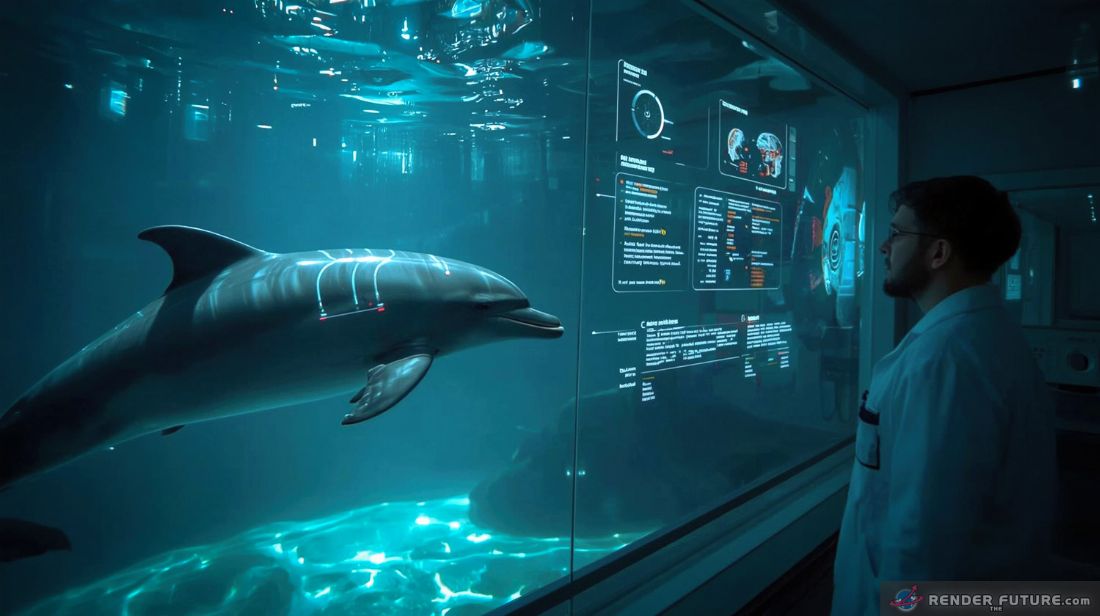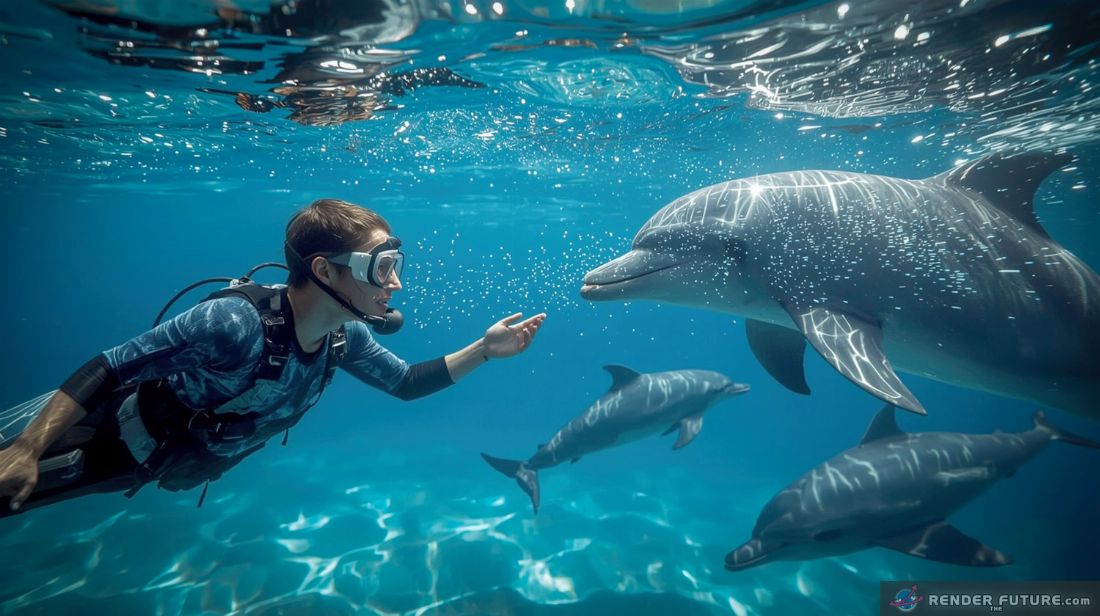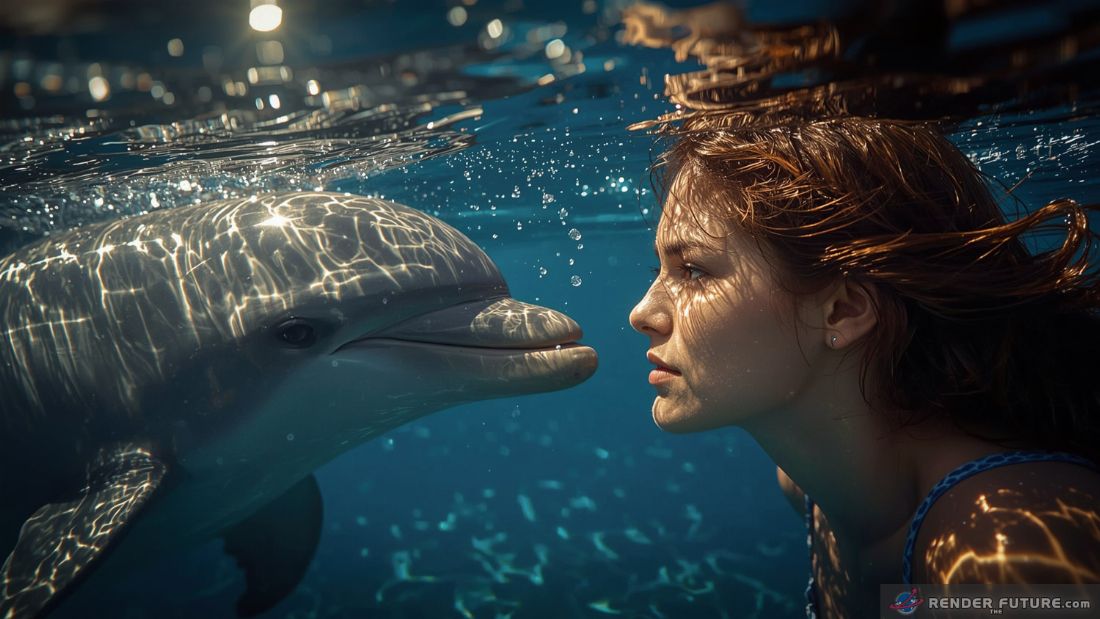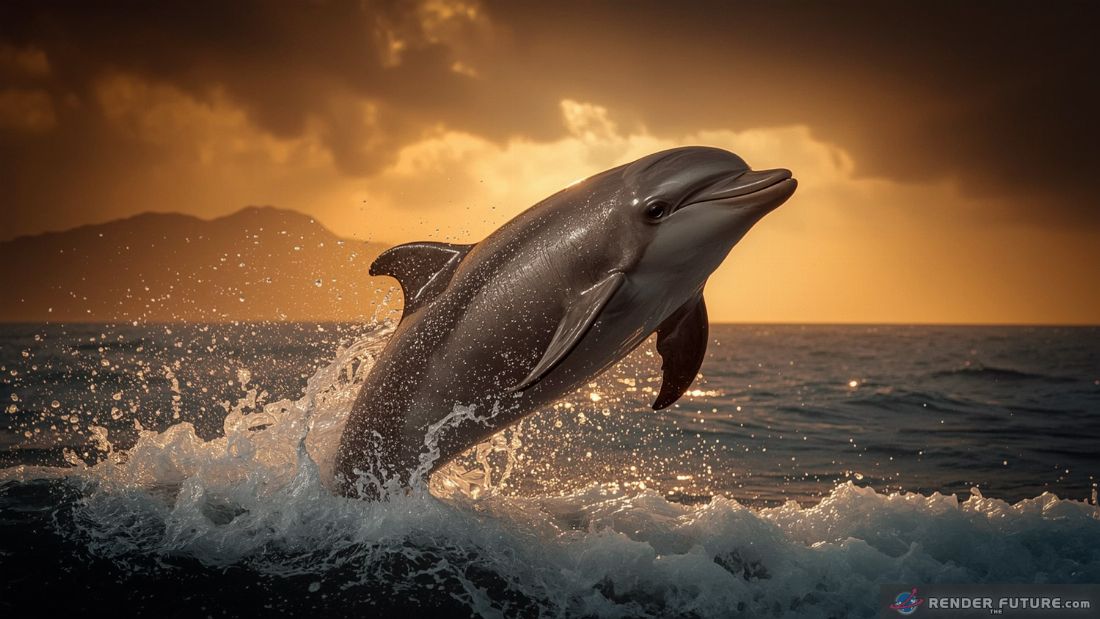Human-Dolphin Chats Coming by 2075
Forget AI – the real communication revolution might be happening underwater.
Scientists predict that by 2075, we’ll crack interspecies dialogue with dolphins using neural implants, AI translation, and hybrid brain-computer interfaces.Early experiments show dolphins can learn symbolic language, but the real breakthrough?
Bidirectional communication – where humans finally understand dolphin clicks, whistles, and maybe even humor.
Why Dolphins?
- Their brains are second only to humans in complexity
- They have names for each other (and maybe for us)
- They teach, grieve, and play – signs of deep social intelligence
The Ethical Tsunami
But should we? Critics warn:
- Consent issues – can a dolphin agree to a brain interface?
- Cultural contamination – will we alter dolphin society forever?
- The “Zoo Effect” – will they see us as peers or just weird, hairless captors?
Your Vote!
🐬 Like if you’d want to chat with a dolphin
⚠️ Comment: Is this a scientific milestone or a moral minefield?

The Dolphin Dialogues: Humanity’s First Alien Conversation
Forget waiting for extraterrestrials – the most mind-blowing first contact in human history might happen right here on Earth, with a species that’s been laughing at our clumsy attempts to understand them for millennia. By 2075, neural implants and quantum-AI translators could finally bridge the gap between human and dolphin cognition, turning clicks and whistles into shared language.
Visualize swapping stories with a dolphin about the ocean’s mysteries or finally grasping why they seem to find our snorkeling so hilarious. But here’s the kicker: What if they’ve been trying to warn us about climate collapse all along – and we just couldn’t hear them?
The Dark Side of Dolphin Duolingo
This isn’t just about cute interspecies chit-chat. Wiring dolphin brains to human tech raises ethical quagmires: How do you get consent from a creature without the concept of “informed consent”? Could sharing our languages and tech erode their culture, turning tight-knit pods into dependent colonies?
And what happens when dolphins start demanding rights – or worse, start judging us for our treatment of their oceans? The real test won’t be technological; it’ll be facing the uncomfortable truths they might “say” back.
What happens when dolphins gain a voice – and use it to testify against us? Marine lawyers are already drafting “Cetacean Personhood Acts” for the inevitable courtroom battles. Imagine dolphin whistle recordings played as evidence in pollution trials, or pods unionizing against destructive fishing practices.
The possible outcome? Their first translated words might not be greetings, but indictments: “You knew the oceans were dying. You did nothing.” Suddenly, the most damning whistleblower isn’t a human – it’s a bottlenose with firsthand evidence of our ecological crimes.
The Unexpected Upside
Yet, the potential is staggering. Dolphins could become partners in marine conservation, guiding us to dying coral reefs or lost shipwrecks. Their 25-million-year head start understanding ocean ecosystems might help reverse climate damage.
And philosophically? Recognizing another Earthly intelligence as our equal could shatter human exceptionalism for good. The humility of finally realizing we’re not the only smart ones on the planet might be the wake-up call our species desperately needs.
What if dolphins become Earth’s ultimate conservation partners? With their millennia of oceanic wisdom, they could guide us to hidden climate refuges, locate illegal fishing operations, and even help restore coral reefs through coordinated “ecosystem engineering.”
Their sophisticated social networks might teach us new models of community resilience, while their playful intelligence could inspire AI systems that prioritize curiosity over control. This isn’t just communication – it’s the beginning of an interspecies alliance to heal our planet.
So – Will We Listen or Interrupt?
The dolphins aren’t the ones who need to evolve here – we are. This isn’t about teaching them human language; it’s about us learning to shut up long enough to comprehend a wisdom far older than our own. The first words we translate shouldn’t be “Hello” – they should be “Teach us.”
The ultimate test won’t be technological – it’ll be psychological.
Are we prepared to hear truths that could shatter human exceptionalism? To receive 50 million years of oceanic wisdom without trying to “correct” it? The dolphins may offer solutions to crises we created, but only if we approach them as students, not superiors. This is our chance to evolve from Earth’s narcissistic teenagers to collaborative custodians – if we can stomach the humility.
An Ocean of Possibility Awaits
This isn’t just about breaking the language barrier – it’s about bridging the empathy gap. Imagine a future where human children grow up conversing with dolphin elders, where ocean wisdom informs land-dweller decisions, where intelligence is measured not by technological domination but by harmonious coexistence.
The dolphins have survived 50 million years of planetary changes; perhaps their first message to humanity should give us hope:
“You’re not alone in saving this world. Let’s swim together.”

References and Sources:
- Marine Cognitive Science Journal: “Decoding Dolphin Language” (2070)
- MIT’s Interspecies Communication Project (2068)
- Nature Ethics: “The Rights of Non-Human Minds” (2072)










